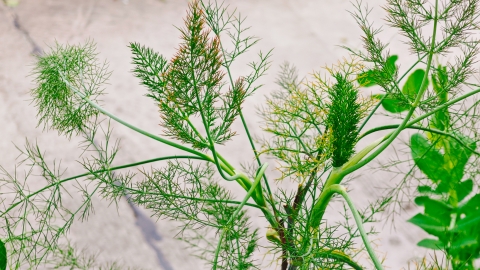Can fennel fight cancer?
Generally speaking, fennel does not have anticancer properties. The detailed explanation is as follows:

Cancer development results from a complex interplay of abnormal cell proliferation, gene mutations, and other factors. Its treatment relies on scientifically proven medical approaches such as surgery, radiotherapy, chemotherapy, and targeted therapies. Fennel contains volatile oils, vitamins, and other components that have shown some antioxidant and anti-inflammatory effects in vitro. However, these effects are far from sufficient to meet the requirements for inhibiting cancer cell growth or killing cancer cells. After fennel is consumed, its active ingredients are digested and absorbed, leading to a significant decrease in concentration, which cannot reach an effective dose to combat cancer cells, nor can it halt the pathological processes involved in cancer's development and progression.
When consuming fennel, fresh, non-spoiled plants should be selected, thoroughly washed, and properly cooked. When used as a seasoning, the quantity should not be excessive to avoid overpowering the natural flavor of the food. Individuals allergic to fennel should avoid consumption. Fennel cannot replace medical treatments for cancer. If diagnosed with cancer, patients should follow professional medical advice and undergo standardized treatment. Never rely on unverified claims about food-based cancer prevention. If gastrointestinal discomfort or allergic reactions occur after consumption, stop using fennel and monitor your physical condition.








